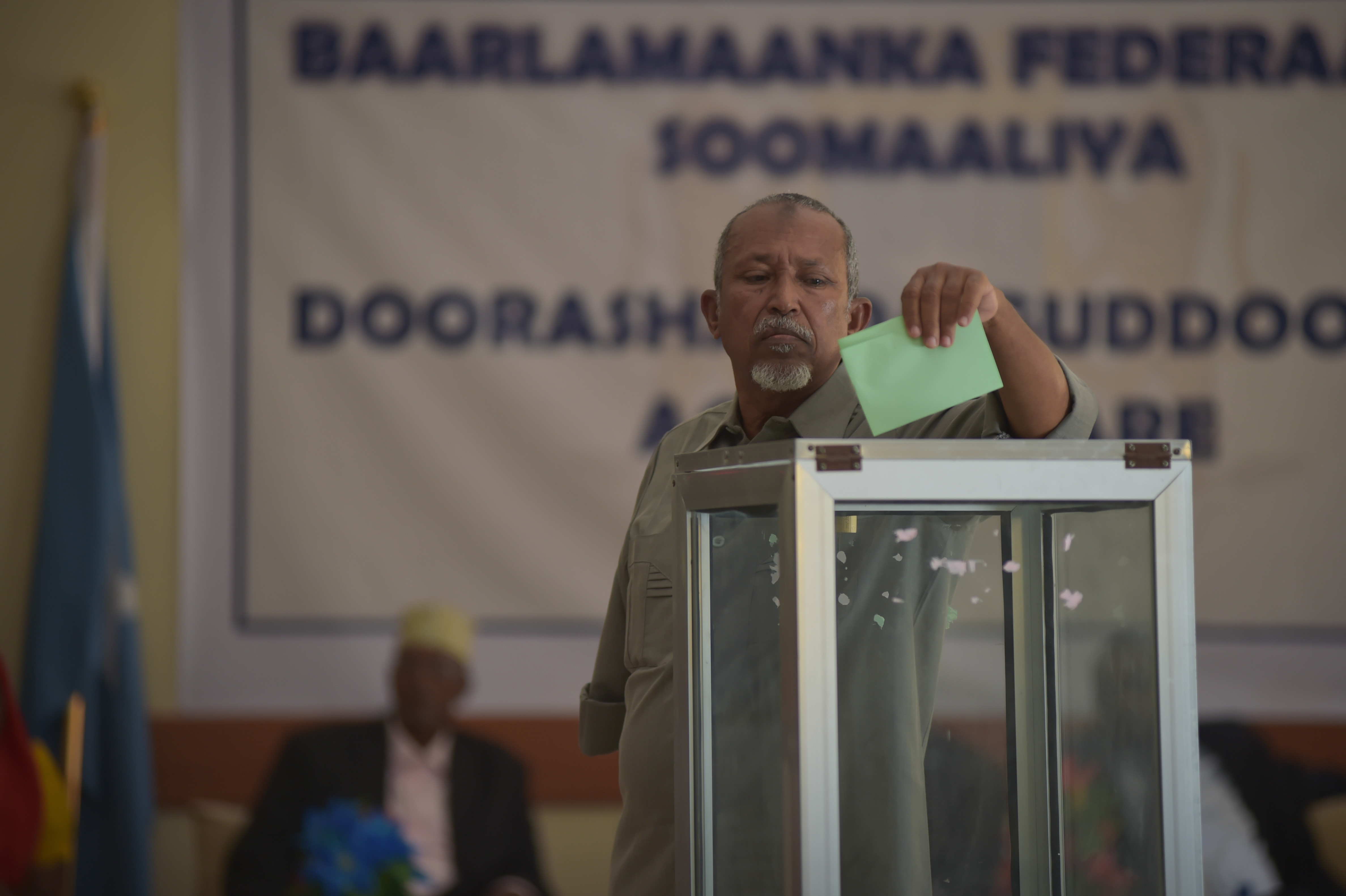GOVERNANCE: Somalia ranks last in Africa but records progress-report

By T. Roble
Despite ranking last in overall governance in Africa in 2017, Somalia has registered progress scoring positively in all indicators, a new report has said.
The Ibrahim Index of African Governance 2018 report notes that Somalia rose from an index of 11.6 out of the continental average 50.8 in 2016 to 13.6 out of the African average of 49.9 which translated to a +6 difference.
The report which is built on four broad indictors namely human development, safety and rule of law, participation and human rights and sustainable development indicates that though Somalia ranks least in all these areas, there is a positive forward progress.
For example in Human Development which encompasses welfare, education and health, the Horn of Africa country recorded a score of 16.4 with a +8.2 against the continental average of 52.8. In safety and rule of law, Somalia recorded a dismal performance with a score of 12.3 equal to a +3 upward move.
The country also recorded the lowest score in public management, business environment, infrastructure and rural sector all covered under Sustainable Economic Opportunity with a score of 7.4 against the African average of 44.8 but this was also an increase of 4.6 points.
In the last indicator, Participation and Human Rights, Somalia was ranked number 53 scoring 18.3 with a positive move of +8.3. This indicator which incorporates citizen participation in governance, rights and gender is the most improved area according to the report released today.
Meanwhile the report which is funded by the Sudanese born Mo Ibrahim has warned of very marginal progress in job creation noting African economies were not producing jobs despite economic growth. The report observes that Africa’s working population (ages 15-64) is expected to grow by +27.9 over the next ten years but the job market is not expanding to meet the demands of this growth.
“The numbers relating to Africa’s working age population are staggering. Between 2015 and 2050, Africa’s working-age population will increase by +901.8 million people. To put this into context, in the same time period, while there will be an additional +263.3 million working-age people in India, the figure is expected to drop by -84.5 million in Europe and by -199.9 million in China,” the report notes.
Ibrahim said despite the expanding work force in Africa which could translate to economic boom if well tapped, African countries were not about to tap on these opportunities.
“Africa has a huge challenge ahead. Its large and youthful potential workforce could transform the continent for the better, but this opportunity is close to being squandered,” Mo Ibrahim, the Sudan-born billionaire who leads the foundation behind the report, said in a statement. “The evidence is clear – young citizens of Africa need hope, prospects and opportunities. Its leaders need to speed up job creation to sustain progress and stave off deterioration.”